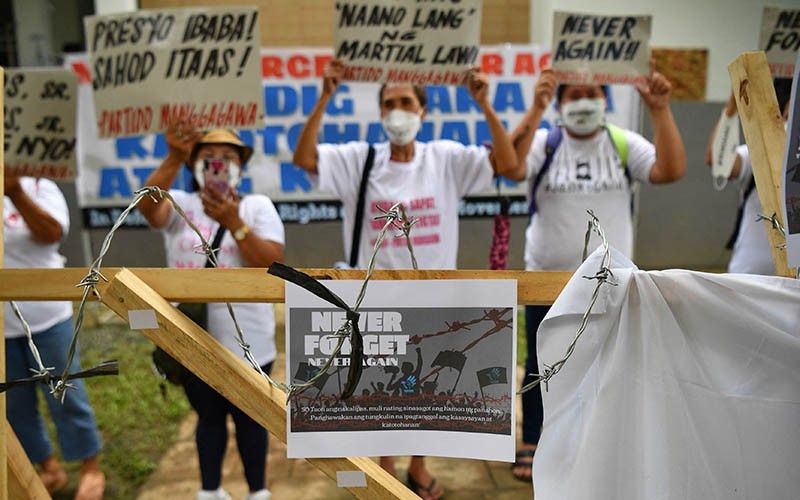DepEd eyes teaching human rights violations during Marcos and post-EDSA eras in Grade 6

MANILA, Philippines — In a move seen to deter attempts to revise history, human rights violations that took place during the Marcos dictatorship and the administrations that followed his presidency will be covered under Araling Panlipunan in Grade 6, as seen in the Department of Education’s recently released draft basic education curriculum.
In its proposed K-10 curriculum, DepEd is eyeing to introduce human rights violations as one of the outcomes of Marcos' dictatorship as a subtopic under "challenges to democracy / the Marcos dictatorship” in the third quarter of Grade 6.
This will then be followed by discussions on the human rights violations that took place in the administrations following the 1986 EDSA revolution, which will be taught in the fourth quarter, according to the draft curriculum.
While the current DepEd curriculum mentions “challenges to freedom and human rights” during Martial Law, its actual curriculum guide for Araling Panlipunan does not cover “human rights violations” under the Marcos administration and does not use the word “dictatorship” to refer to his rule, unlike the new curriculum.
The syllabus for the post-EDSA period in the current curriculum also only covers the presidents that succeeded Marcos and does not include the human rights violations that took place under their administrations.
The revamped Araling Panlipunan curriculum will also cover other events that took place under the Marcos dictatorship, such as the disappearance of an independent Congress and other democratic institutions, the weakening of the economy and “ill-gotten wealth.”
DepEd also included under the "post-EDSA" period lessons on corruption, political dynasties, peace education and the media as a watchdog of democracy, among others.
Another new inclusion in DepEd’s proposed curriculum is the mention of “red-tagging, trolling and extrajudicial killings” as human rights violations in the lessons under Grade 10 Araling Panlipunan.
RELATED: Draft DepEd curriculum recognizes red-tagging as rights violation
Concerns on execution, implementation
Human Rights Watch (HRW) told Philstar.com in an online meassage that improving the curriculum to include human rights and related issues is “welcome” and “remarkable… given the sordid history in this country of human rights violations.”
Besides changing the curriculum, however, HRW senior researcher Carlos Conde said that DepEd needs to ensure that the new lessons are taught “according to the spirit and intent of the curriculum.”
“Especially because we have an education secretary who has not made secret her disdain for activists — who are the main victims of rights abuses — and who is known for red-tagging critics,” Conde said.
Conde added that it would be “interesting” to see how DepEd will carry out its proposed curriculum, if approved, given Duterte’s background and the Marcos family’s continued denial of rights abuses abetted by Marcos Sr.
Similarly, while the Alliance of Concerned Teachers has commended the inclusion of more "progressive" topics in the proposed curriculum — lessons on human rights violations included — it also pointed out that limited teaching hours could prevent the discussion of more complex topics in class.
The Commission on Human Rights' guide to the human rights education system in 2013 said learning about human rights entails identifying what human rights are and their possible violations, such as "torture, genocide or violence against women and the social, economic, political, ethnic and gender forces which cause them."
The push to include lessons on human rights in basic education go as far back as 1987 when then-Department of Education, Culture and Sports required the "understanding of human rights" in the curricula of all levels of education so students can learn the "importance of respect for human rights and their accompanying responsibilities."
- Latest
- Trending































